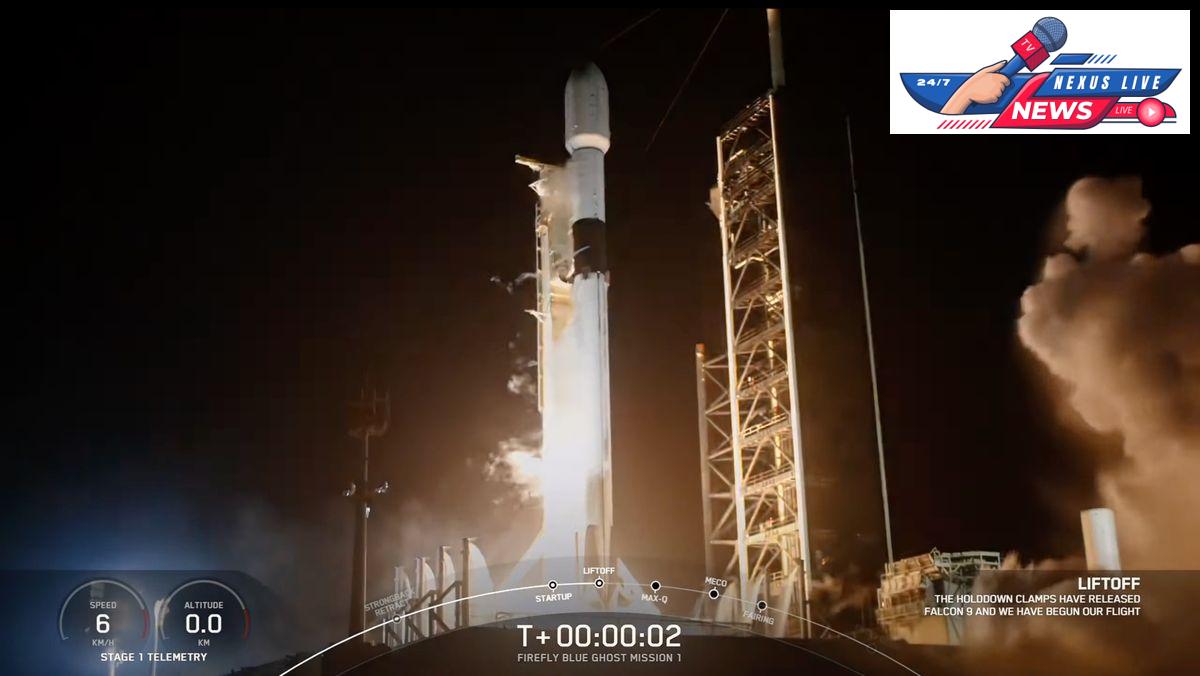In an exciting event marking a significant milestone in space exploration, SpaceX’s Falcon 9 rocket successfully launched two private lunar landers on January 15, 2025, from Kennedy Space Center in Florida. This extraordinary mission featured Firefly Aerospace’s Blue Ghost and ispace’s Resilience, both of which are set to explore the lunar surface.
The Launch Details
The launch occurred at precisely 1:11 a.m. EST under the luminous glow of a full moon, lighting up the night sky. SpaceX used its Falcon 9 rocket, well-known for its reliability and cost-effectiveness, to carry these ambitious landers on their journey to the moon.
- Blue Ghost: This lander is carrying ten special payloads from NASA, focusing on crucial research about the lunar environment.
- ispace’s Resilience: This marks their second attempt at a lunar mission, showcasing their determination to become a key player in lunar exploration.
- Mission Duration: Blue Ghost will orbit Earth for about 25 days before heading to its lunar landing site in Mare Crisium.
- Resilience’s Journey: It plans a more energy-saving route, with an expected landing in Mare Frigoris approximately four and a half months after launch.
What’s on Board?
Both landers come with fascinating missions. The Blue Ghost’s significant contribution includes ten specialized NASA payloads designed to investigate the moon’s environment. This mission is especially exciting as it is part of NASA’s Commercial Lunar Payload Services (CLPS) program, which aims to establish a sustainable presence on the moon.
Meanwhile, Resilience has plans to deploy a nifty microrover named Tenacious, designed to collect samples of lunar soil, also known as regolith. This innovative technology could provide valuable insights into the moon’s composition and history.
Significance of the Mission
This launch is more than just an exciting event; it represents a crucial step in the growing commercial aspect of lunar exploration. Private companies like Firefly and ispace are joining forces with NASA to open new frontiers in space, aiming not only to explore but to eventually inhabit lunar regions.
As private space missions become more common, this could pave the way for future expeditions to Mars and beyond. The collaboration between SpaceX and these private companies showcases how teamwork in the space sector can drive humanity forward in its quest to understand and explore the cosmos.
The Role of NASA and the Future
Nasa has played a vital role in facilitating this launch through its Artemis program, which aims to return humans to the moon by the late 2020s. The work done today will help in gathering knowledge that could be instrumental for future lunar missions and ultimately Mars exploration. As space travel becomes more accessible, young scientists and engineers today might have the opportunity to be part of these incredible journeys.
Key Takeaways from the Launch
| Feature | Blue Ghost | Resilience |
|---|---|---|
| Launch Date | January 15, 2025 | January 15, 2025 |
| Lander Type | NASA payload carrier | Microrover deployment |
| Landing Area | Mare Crisium | Mare Frigoris |
| Mission Duration | 60 Earth days | 4.5 months |
This successful launch of two lunar landers is indeed a remarkable achievement for SpaceX and a thrilling moment for space enthusiasts around the world. It emphasizes the promising future of space exploration with private companies stepping up to aid NASA in reaching ambitious goals. As we watch these missions unfold, our imaginations can soar high, dreaming of the next human footprints on the lunar surface.









